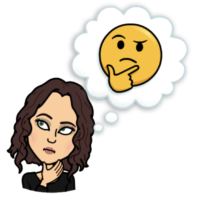
I was in a classroom this week during a teacher’s prep period. The educator was eager to show me the strategies she was implementing from recent professional learning, and shared student work that revealed learner improvement. I was impressed by the teacher’s willingness to apply her learning so quickly, as well as her desire to continue to develop as a professional for the benefit of her students. This is a teacher who was looking for feedback and asked for coaching. In the conversation, she asked how she could continue to level up her teaching, to even more effectively design learning experiences for her students.
In the midst of the conversation, a couple of comments saddened me.
“You were an administrator, correct?” she asked.
“Yes, before my role as a consultant,” I answered.

“Good,” the teacher said. She continued, “Then I have a question for you. I’ve been utilizing the strategies from our district PD, but not exactly as we were taught. Is that ok?”
My heart sunk. This teacher did not feel empowered. She was asking a question focused on compliance, not about what was best for students.
I asked a simple question. “Is your approach working for your students?”
“Yes,” she replied. “I altered it slightly to provide support to my English learners.” The teacher then elaborated with specific reasonings for the changes, complete with evidence of student learning.
“That is great!” I exclaimed. “You are basing your actions on what you know about your students. You are designing learning experiences that meet their specific needs. Strategies and curriculum do not know your students. You do.”
It is common to seek a program, curriculum, or set of instructional strategies that promises results. Educators often look for research based solutions and disseminate them to staff packaged as quick solutions for raising academic achievement. While it is not unwise to provide teachers with resources and professional learning, we must communicate the fact that teachers themselves bring valuable perspective as well. Just as we ask of our students, as educators it is vital that we continuously learn, apply, reflect, and iterate.

I have seen teachers follow a textbook blindly, afraid to go off script from what the “experts” have compiled to be effective. But teachers are the experts of the students in their classrooms.
Textbooks, programs, and strategies are tools. Teachers are designers, building learning experiences for the students in their midst. Be careful that the tool does not become more important than the design.
Educational leaders, do you trust your teachers to be professionals, who curate their learnings and adapt as necessary to meet the context of this year’s group of students? And do they know that they are valued as such?
Educators – remember that you bring value. It is your connections with students, your attention to recognizing and meeting their individual needs, that makes you more valuable than any program or curriculum.
